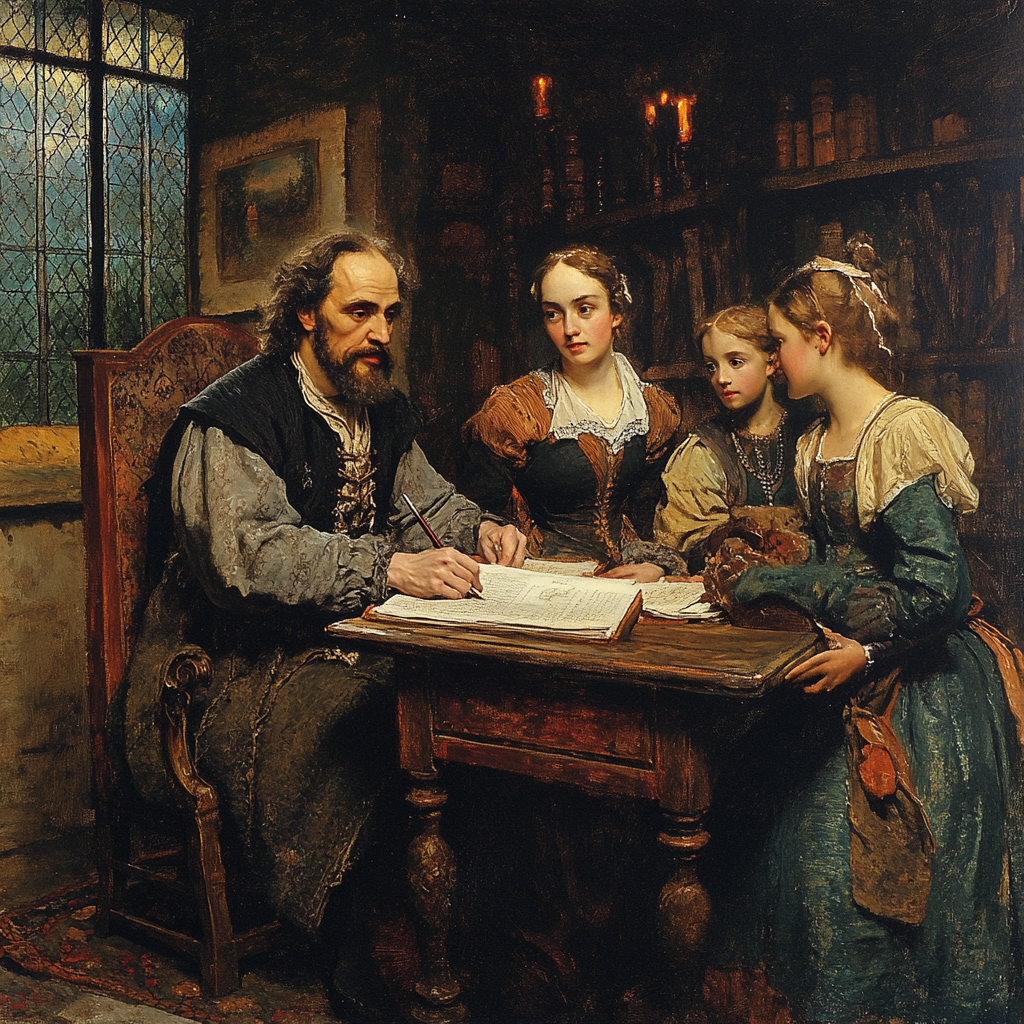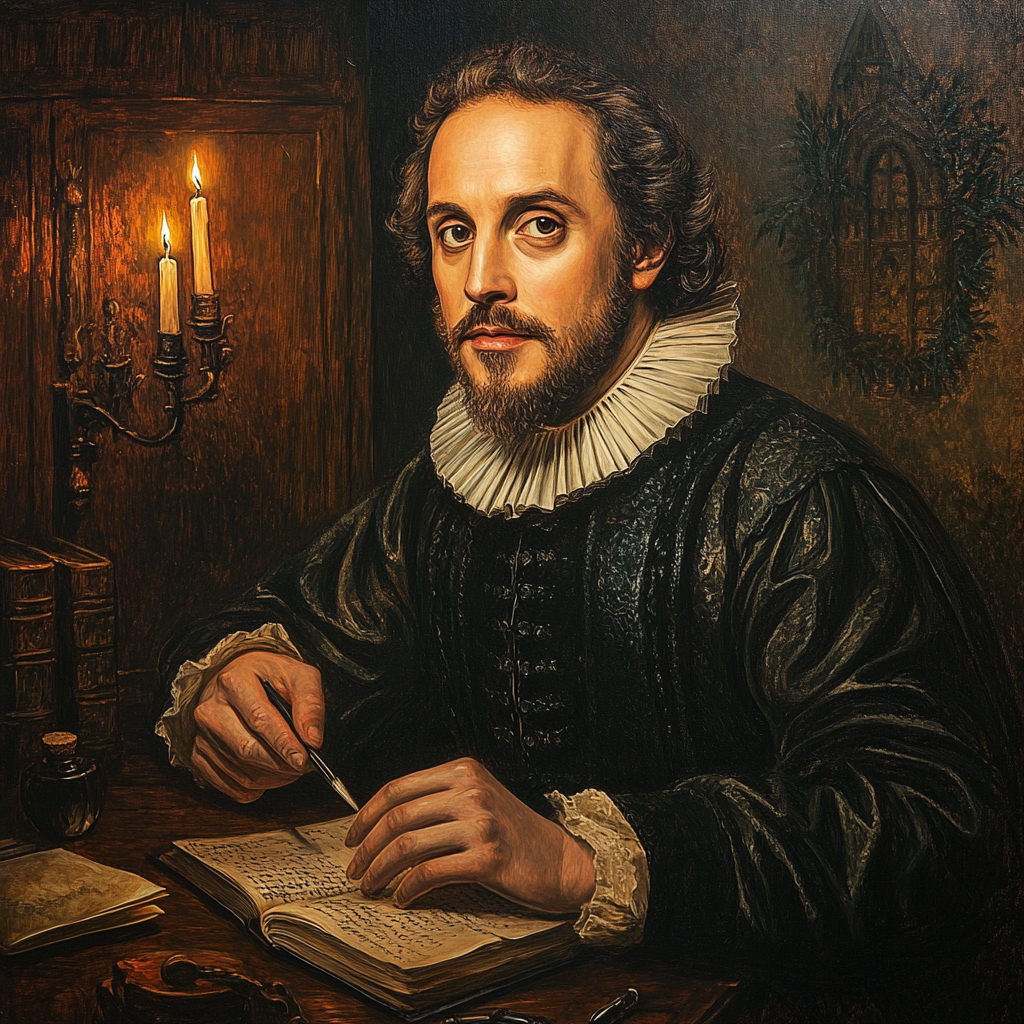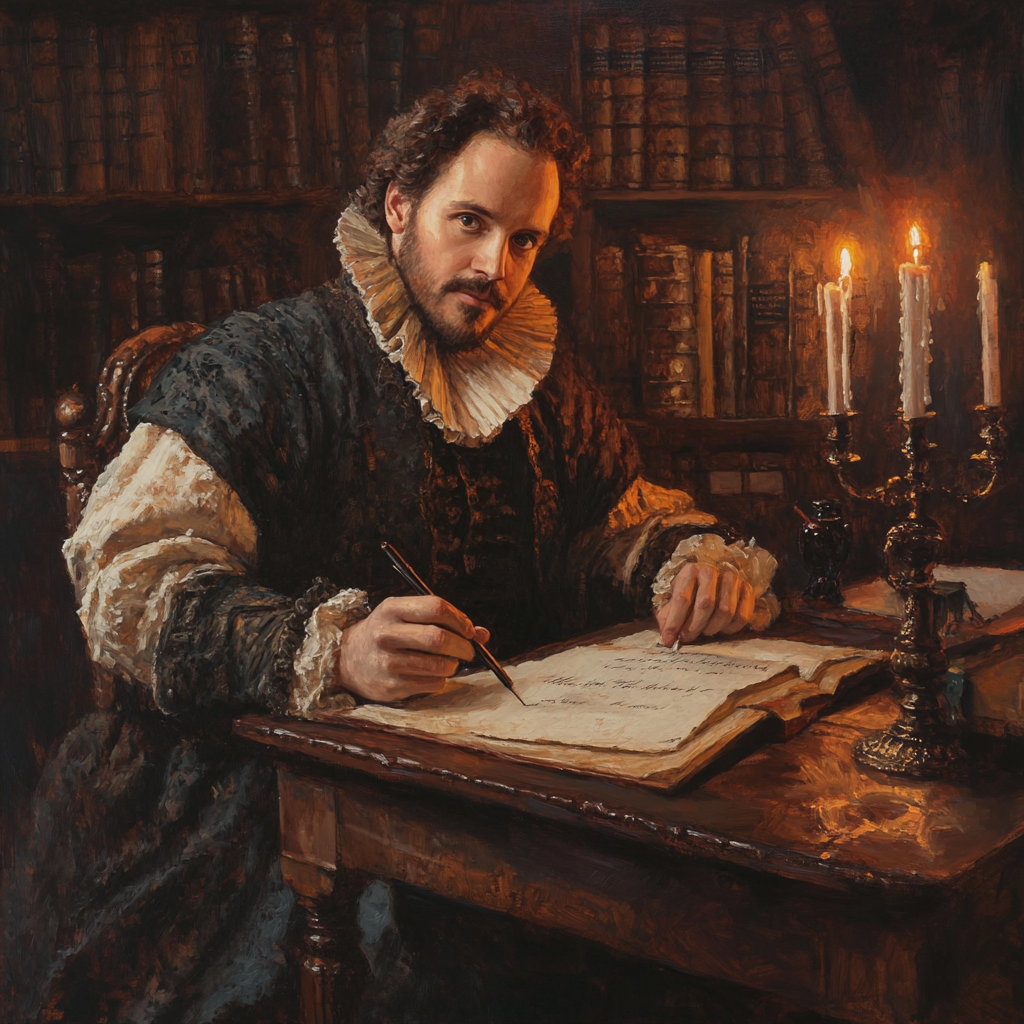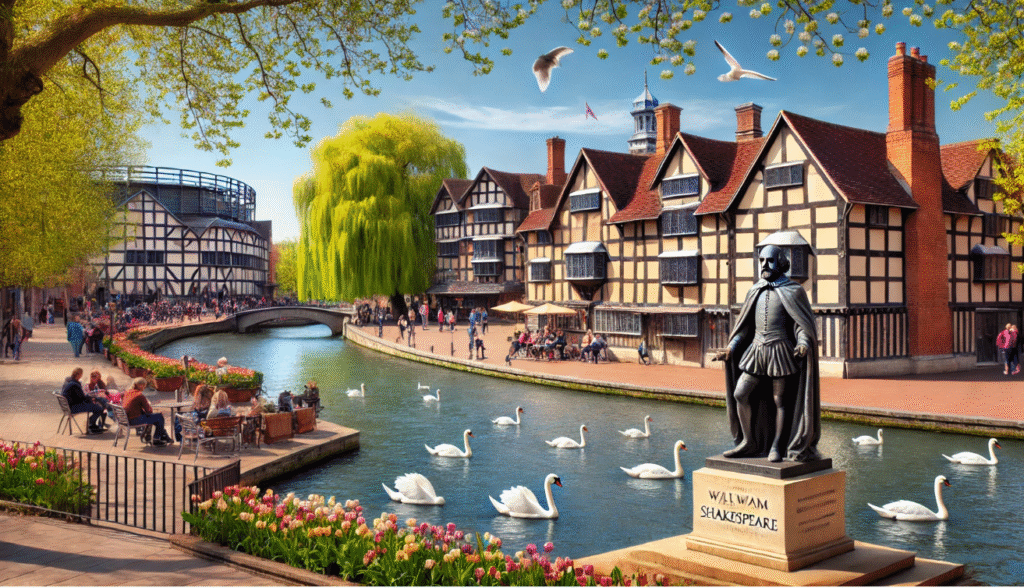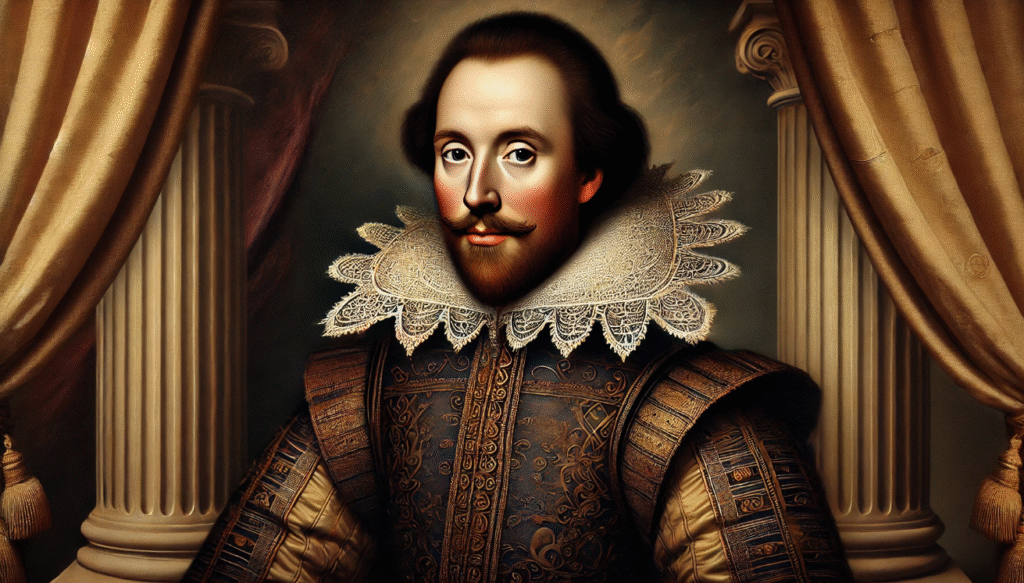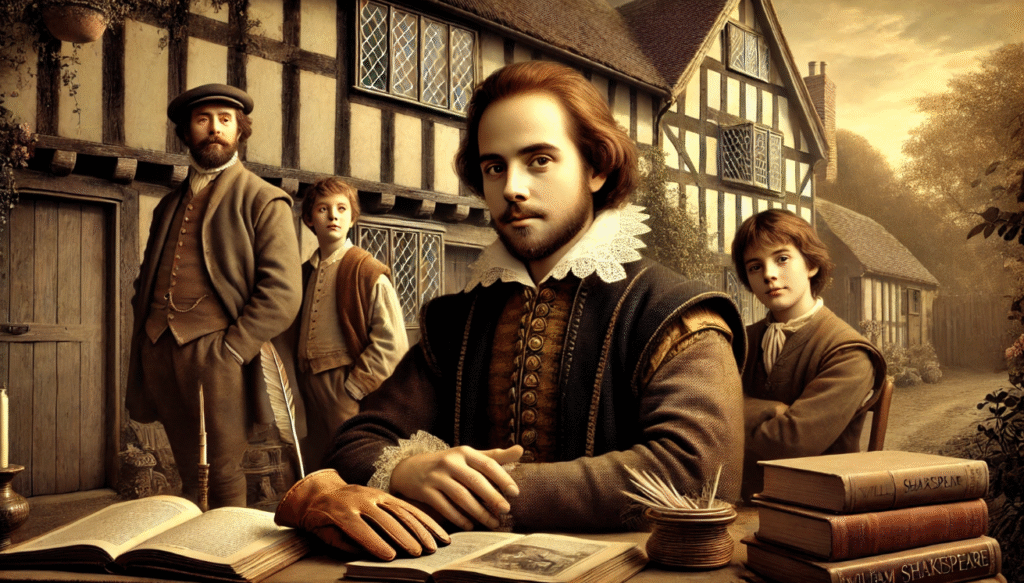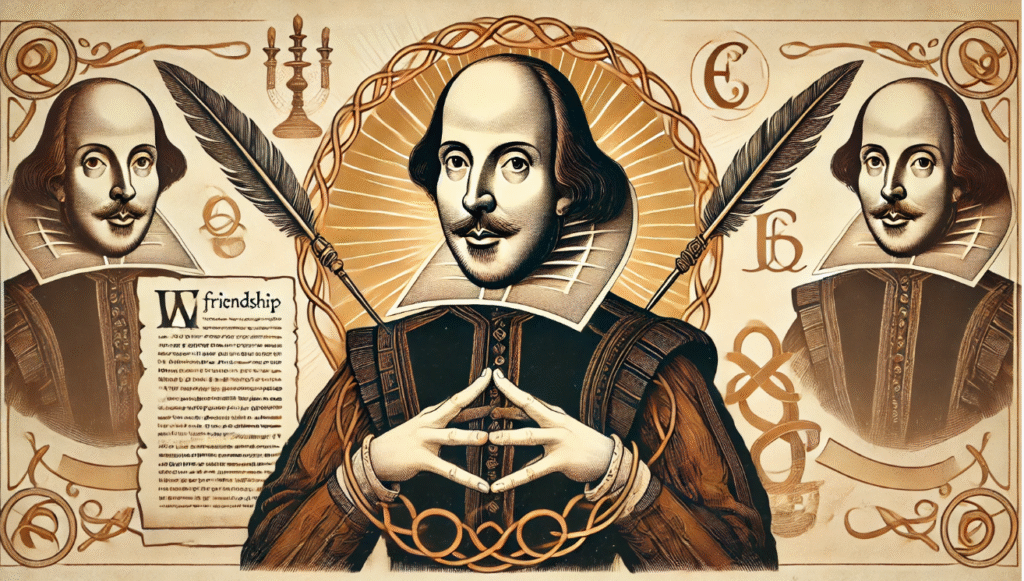William Shakespeare was an English playwright, poet, and actor who lived during the late 16th and early 17th centuries. He is widely regarded as one of the greatest writers in the English language and his works have had a profound impact on literature and theater. Shakespeare’s plays, such as “Hamlet,” “Romeo and Juliet,” and “Macbeth,” continue to be widely performed and studied around the world. His influence on the English language is also significant, as he is credited with coining many new words and phrases. Shakespeare’s cultural impact is immense, as his works continue to be a source of inspiration and influence for artists, writers, and filmmakers to this day.
Shakespeare’s works have had a profound and lasting impact on literature and culture, influencing not only subsequent writers but also the way we understand and express our own emotions and experiences. His innovative use of language, complex characters, and timeless themes continue to resonate with audiences around the world, making him a pivotal figure in the development of English literature and a cultural icon whose influence can be seen in everything from film and theater to music and everyday language.
The Renaissance Context and Shakespeare’s Role

The Renaissance period, which spanned roughly from the 14th to the 17th century, was marked by a renewed interest in art, science, and humanism. It was a time of great cultural and intellectual advancement, with a focus on the potential of human achievement and the pursuit of knowledge. Art during the Renaissance was characterized by a revival of classical styles and techniques, resulting in some of the most iconic works in history. Artists such as Leonardo da Vinci, Michelangelo, and Raphael made significant contributions to the era, creating timeless masterpieces that continue to inspire and captivate audiences today.
The works of an artist or writer can often reflect and shape the intellectual and cultural trends of their time. Through their creative expressions, they can capture the spirit of the era and also influence the thoughts and beliefs of their audience. By addressing the issues and concerns of the day, they can contribute to the ongoing dialogue and development of society. It is through their works that they can leave a lasting impact on the intellectual and cultural landscape of their time.
Transforming English Literature

Complex characters such as Hamlet and Lady Macbeth often embody universal themes such as love, power, betrayal, and ambition. These characters are multi-dimensional and often struggle with conflicting emotions and desires, making them relatable to audiences across different time periods and cultures. Their experiences and choices reflect the timeless human condition, making them enduring and impactful figures in literature and theater.
Shakespeare’s contribution to poetic forms, particularly his mastery of iambic pentameter and blank verse, elevated English drama from mere entertainment to high art. His use of these poetic forms allowed for a natural and rhythmic flow of language, bringing a deeper level of emotional expression and complexity to his plays. Shakespeare’s timeless plays, such as Romeo and Juliet, Macbeth, and King Lear, showcase his command of language and poetic forms. The use of iambic pentameter and blank verse in these works adds a musical quality to the dialogue and heightens the dramatic tension, drawing audiences into the emotional world of the characters.
Influence on the English Language
Shakespeare made significant contributions to the development of the English language through the introduction of new words, phrases, and idioms. Many commonly used expressions such as “break the ice” and “wild-goose chase” originated from Shakespeare’s plays. His innovative use of language continues to have a lasting impact on the way English is spoken and written today.
The long-term impact of everyday speech on modern English is significant. Over time, language evolves through various influences such as cultural changes, technological advancements, and globalization. As a result, everyday speech has a direct impact on the development of modern English. For example, new words and phrases enter the lexicon through popular culture, social media, and other forms of communication, shaping the way we express ourselves in everyday conversation. Additionally, shifts in pronunciation, grammar, and syntax can also be attributed to the influence of everyday speech on modern English. Furthermore, the use of slang, jargon, and colloquialisms in everyday speech contributes to the diversity and richness of the English language.

Cultural Significance and Global Reach

Shakespeare’s works are often seen as a reflection of societal values and human nature during his time. His plays and sonnets explore themes such as love, power, ambition, and morality, offering insights into the complexities of human behavior. Additionally, his works have been adapted across different cultures and languages, showcasing their universal appeal and relevance. These adaptations allow for a deeper under standing of Shakespeare’s timeless themes and characters, as well as their continued resonance in today’s global society.
The influence Shakespeare’s historical significance of global art forms on film, theatre, and music has been significant, with many modern adaptations and reinterpretations stemming from traditional art forms. For instance, West Side Story is a modern adaptation of Shakespeare’s Romeo and Juliet, set in the context of 1950s New York City. The Lion King, a popular Disney film, draws inspiration from the Shakespearean play Hamlet. These reinterpretations showcase the enduring influence of traditional art forms on contemporary storytelling and entertainment. Additionally, the infusion of global art forms has brought diverse cultural perspectives and styles to the forefront of popular entertainment, enriching the creative landscape of film, theatre, and music.

Enduring Relevance in Education

Shakespeare’s works are an important part of academic curricula worldwide because they have had a profound impact on literature, language, and culture. His plays and poetry have influenced countless writers and artists, and his themes and characters continue to be relevant and thought-provoking. Studying Shakespeare allows students to develop critical thinking skills, analyze complex texts, and gain a better understanding of human nature. Additionally, his works provide insight into the historical and social context of the time period in which they were written. Overall, Shakespeare’s contributions to literature and his enduring influence make his works a crucial component of academic curricula around the world.
Certainly! Throughout his works, the author has provided valuable insights into morality, politics, and human emotions. His stories often serve as a reflection of societal values and ethical dilemmas, shedding light on the complexities of human nature and behavior. Through his characters and plot developments, he offers lessons on the consequences of moral choices, the dynamics of political power, and the intricacies of human emotions. Overall, his works provide a rich source of material for exploring these fundamental aspects of human experience.
Shakespeare’s works continue to inspire new generations of writers and artists because of their timeless themes, universal characters, and innovative language. His plays and sonnets explore the depths of human emotion and experience, providing endless material for adaptation and reinterpretation. Additionally, his use of complex and multi-layered language challenges and stimulates the creative minds of those who seek to follow in his footsteps. As a result, Shakespeare’s influence can be seen in a wide range of literature, theater, film, and other artistic forms, ensuring that his legacy will continue to inspire for years to come.
William Shakespeare, often referred to as the Bard, is one of the most influential figures in the history of literature and his works continue to have a significant impact on culture. Shakespeare’s plays and poetry have shaped the way we understand human nature, emotions, and the complexities of the human experience. His mastery of language and storytelling has made his work timeless and has solidified his place as one of the greatest writers in history. Shakespeare’s enduring legacy is evident in the countless adaptations, reinterpretations, and references to his work in popular culture. His influence can be seen in everything from movies and television shows to music and art.The controversies surrounding Shakespeare’s works largely revolve around questions of authorship, with some scholars and conspiracy theorists suggesting that someone else may have written his plays and poems. However, the overwhelming majority of academics and experts believe that Shakespeare was indeed the author of his works. In terms of his legacy, Shakespeare’s storytelling techniques continue to have a profound impact on modern media. His themes, characters, and dramatic structure are frequently adapted and referenced in movies, books, and TV shows. Many contemporary writers and filmmakers draw inspiration from Shakespeare’s timeless narratives, and his influence can be seen in a wide range of genres and storytelling formats. Overall, Shakespeare’s legacy continues to shape the way we tell stories in the modern world.








